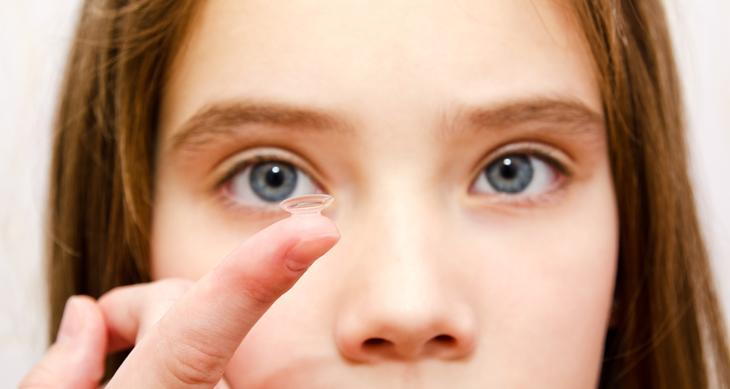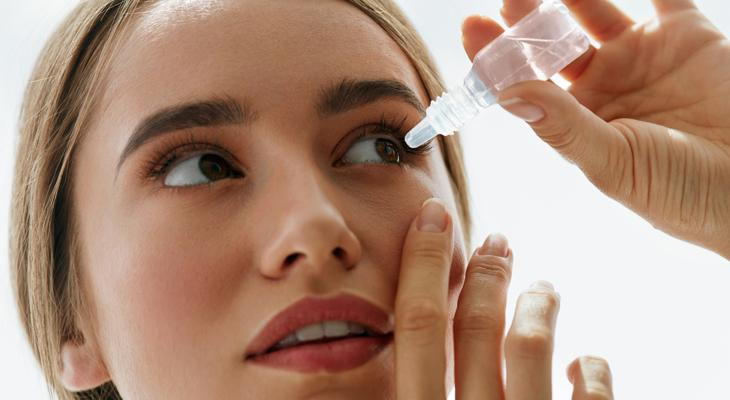
Contacts are a discrete alternative to vision correction. They work the same way as glasses. They bend light, so it shines on the retina. Contacts can drastically improve your vision, but you should know how to use and care for them properly.
How to Put Contacts In
Firstly, you should understand how to put contact lenses in your eyes. You should always wash your hands before touching your contacts.
When you first start wearing contacts, you should look into the mirror, so you can see what you're doing. Place the contact on the end of your index finger. Use your other hand to hold open your top and bottom eyelids. Ideally, look upwards as you insert the lens.
You may need to move your eye around slowly or press on your eyelid to ensure the contact is in its proper position. Repeat this same process to insert the contact in your other eye.
How to Take Contacts Out
Wash your hands before you remove your contacts. Next, pull down your lower eyelid and use your index and thumb to pinch the contact gently. If the contact is a daily lens, you should toss it. If not, you should immediately put it in contact solution. Repeat these steps for the other eye.
You may experience some difficulty getting your contact out if your eye is dry. Try lubricating your eye with your contact solution, so that it is moist enough.
The Do’s and Don’ts of Wearing Contacts
As you continue wearing contacts, you should practice certain habits to prevent infection and extend the life of your contacts.
Do: Take Your Contacts Out Regularly
If your contacts aren't made to sleep in, you should take them out each night and place them in contact solution or dispose of them.

Do: Change Your Contact Solution Regularly
You should empty the solution in your contact case every day and replace it with new solution. The purpose of the solution is to clean the calcium, bacteria, and debris from your contacts. You don't want your lenses soaking in the same filthy solution.
Do: Use Recommended Contact Solution Only
Not all solutions are intended for contacts. Make sure you only use a solution recommended for contacts.
Do: Dispose of Contacts if You Have an Eye Infection
If you place your contacts in your eye and have an eye infection, you should dispose of the lens you had in the infected eye after use to prevent reinfection.
Do: Rinse a Contact That Falls on the Ground
A lens that falls on the ground picks up any dirt and bacteria from the ground and will irritate your eye if you reinsert it without cleaning it first. Therefore, you should use a contact solution to rinse the contact before putting it back in your eye.
Do: Wear Swimming Goggles
Wear swimming goggles when you swim with contacts in. It will prevent your contacts from drying out or tightening up from the water. But, if possible, it’s best to avoid wearing them in any body of water because you don't want to risk any bacteria entering your contact lenses. Even in a pool with chlorine, there can still be some bacteria.
Do: Wear Protective Goggles or Glasses
Whether you're sanding, mowing the lawn, or in another situation where particles could get on your contacts, you should wear protective goggles or glasses. The goggles or glasses will also protect your eyes in general.
Do: Put the Right Contact in the Right Eye
Most people don't have the same prescription in both eyes. Therefore, one contact won't correct vision optimally in both eyes. Make sure you put the correct contact on the correct side of your lens case to prevent accidentally mixing up your contacts.
Do: Put Makeup on After Putting Contacts in
Put makeup on after you put your contacts in to reduce how much makeup comes in contact with your contacts.
Don'ts of Contact Wearing
On the other hand, there are certain don'ts of contact wearing.
Don't: Wear Contacts Longer Than Recommended
In other words, if you have daily disposable lenses, you should wear them once and dispose of them at the end of the day.
Don't: Use Eyedrops Without Reading Instructions

Some eyedrops could cause your contact to fuse to your eye when it comes in contact with it. Therefore, you should always read the directions before using any eye drops with contacts.
Don't: Wear Your Contacts if You Have an Eye Infection
When you have an eye infection or even have irritation due to allergies or another purpose, you should never wear your contacts. The microbes will linger on your contacts, so you'll continue to reinfect yourself and slow the healing process. If your eyes are irritated for another reason, you could exacerbate the problem with contacts.
Don't: Forget to Clean and Change Your Case
Your contact case may pick up dirt. You should clean the case regularly and change it as needed.
Don't: Forget Routine Visits
You should visit your optometrist every one to two years for an examination. Your vision could change, causing your contacts to not correct your vision as much as they could.
Don't: Clean Your Contacts With Saliva or Water
You should not use water to clean your contacts. Water won't disinfect your contacts, so bacteria could grow in the water. Saliva, on the other hand, contains all the pathogens and debris of your mouth, which will contaminate your contacts.
Don't: Remove Makeup With Your Contacts in
Always remove your contacts first before you remove your makeup to avoid contaminating your contacts with makeup remover and old makeup.
Don't: Forget to Wash Your Hands
Anytime you touch your eyes, you should always wash your hands first to prevent introducing pathogens into your eye.
By understanding how to put contacts in and take care of them properly, you'll be able to extend the life of your contacts. Additionally, you'll prevent an eye infection and make wearing contacts as comfortable as possible.
Locations
Hours of Operation
9:00 am - 5:00 pm
9:00 am - 5:00 pm
9:00 am - 5:00 pm
9:00 am - 5:00 pm
9:00 am - 5:00 pm
11:00 am - 2:00 pm
Closed


